Bernstein: I’ve had the time of my life
Sir Howard Bernstein’s time as chief executive of Manchester City Council comes to an end today. Paul Unger visited Room 212 in the Town Hall earlier this week to talk handovers, missing the mayoral election, favourite architects and planners, not hitting the non-exec trail, a forthcoming museum exhibition in his honour, and much more.
What have you been tying up these last few weeks?
You can’t tie up everything can you? It’s about getting what you can over the line and we’re doing that. It also coincides with year-end which is helpful as well because there’s lots of transactions which have to be tied up by the year end so we’ve been focused on that, making certain that what needs to be done is being done.
Have there been priorities of things that you wanted to get over the line in particular?
The Factory [£110m government-funded arts centre in St John’s, being developed by Manchester City Council in partnership with Allied London] has been a big priority for me. And that’s coming together very nicely. We’ve had the gateway approvals with Treasury so we’re now looking at building contracts and getting on site in the middle of this year. There’s a lot of health and social care stuff. The adult social care package.
Is there anything you didn’t quite get over the line that you wanted to?
Never. No. Always move forward.
Does the council year-end provide a natural break for you?
Yeah, it is a natural break. It was either that or May and 31 March was better for me frankly. And it’s the end of the tax year [laughs].
[Council press officer interjects] And you get to miss the elections this year [in May].
Exactly! I can honestly and genuinely say I won’t miss that [staying up all night for the counts].
In terms of handover what’s been the process?
Well, Eamonn [Boylan, currently chief executive of Stockport Council] is taking over my Combined Authority role [Bernstein was head of paid service, effectively chief executive, of Association of Greater Manchester Authorities, later Greater Manchester Combined Authority], and Joanne [Roney, formerly chief executive of Wakefield Council] is taking over my city role.
Eamonn and I have worked together for years and we have long chats and so that’s not an issue. And obviously I have had a few chats with Joanne, she’s been in here, I saw her about six or seven weeks ago.
Have you got plans for your last day on Friday?
Well it’s a CA [Combined Authority] day on Friday so it’s heavy…it’s our monthly series of meetings, leaders, combined authority, health and social care partnership. So I’ll spend quite a bit of Friday in Bury [CA meetings rotate around the 10 boroughs through the year], then come back here, pack my bags and have a few drinks with colleagues and then be whisked off into the sunset.
And what about clearing out the office?
That’s already started. Bookshelves emptied. My wife is picking all of that up along with the [Manchester] City seats from Maine Road. And there’ll be an exhibition of my stuff in one of the local museums.
A FORK IN THE ROAD
Have you got a clear diary next week?
No, there’s one or two things on. I’m not going to announce what I’m going to do today. I think the first announcement will be Monday. And then there’ll be other things I’ll grapple with over the coming weeks. I don’t think it’s appropriate while I’m in public office to say what I’m going to do next week, even though everyone is dying to know. What I will tell you is that I’m definitely going to remain as president of Manchester City and president of Lancashire Cricket Club, subject of course to the members of Lancashire supporting that nomination at the end of April.
You’ve said it’s been a seven-day job at the council. Have you got an idea of the amount of work you want to do in future?
It’s the combination of the time pressures and the relentless nature of what I’ve done which I actually want to vary. I could have stayed on here if I’d wanted to for another few years at least; I didn’t think that was in my interests or indeed the city’s. I never wanted the debate, and it would have become a debate next year, ‘how long is Howard staying, he’s 65’. I don’t want that type of debate to characterise my tenure in Manchester as chief executive and I want to start to address whether or not there are different things that I can do while I’ve got some gas in the engine. And we’ll find out how successful that is. It might turn out to be a biblical disaster, in which case at least I’ve tried. But I will continue to work for the city wherever I can, doing the things I like doing.
In terms of job offers, you must have had lots of interesting, colourful and perhaps some silly-money offers from people to go and work with them?
I’m being very courteous to everybody who talks to me. I’m pretty clear, not so much about what I want to do and who I want to do it with, what I am very clear about is what I don’t want to do. I don’t want to go on the non-executive [part-time company director] trail in the short term. Never say never but I don’t think that is for me. What I want to continue to do is to do what I do best – which is working within a business community, working wherever I can for the city and working to support a rebalancing of the economy. None of those values will be particularly far from me.
What’s left for you to achieve?
It’s not me, it’s what I want to see. I think the growth path of this city is clearly established. There’s still no shortage of ambition, there’s still no shortage of compelling investment propositions which are emerging day by day. The city is set for a growth path which is stronger in my view than it’s been for the last 10 years. The issue really is how strong that growth path actually becomes. Is it steady or is it more and more exceptional growth? Well that’s a function of the market but it’s also I think the function of the collaborative culture that I believe exists here, both between the council and the business community and within the business community itself.
I want to see that development programme ramp up. I think devolution gives us the unique opportunity to grapple with challenges which hitherto have been beyond us, for the reason that we never really had the influence and power, never mind the resources, to be able to get people who have been disconnected from the city’s economy to become part of the city’s future success.
Devolution of health, social care, what we can do around skills, and there will be more, gives us unparalleled opportunities. I think it’s that unique combination of a highly productive workforce as well as being a friendly, cohesive, cultural city, with a growth path which will be the envy of any other regional city in Europe which will continue to underpin the city’s long-term growth and success.
FOCUS AND PARTNERSHIP
You mention collaboration with business. How would you describe your style in bringing businesses together, are there certain values you try and instil?
Place, proportionality, focus, and partnership. Those are all in my view values and characteristics which now transcend not just me or the council but everyone who’s connected with the city. I think that’s an important part of the Manchester story. So, for me it’s not the end of the world that Howard is going to move on to other things; the reality is the legacy of that collaborative culture based on those values.
We hear a lot from readers and privately among property professionals about you working with a set group of people on major city centre projects such as Ian Simpson on architecture and Deloitte on planning. What would you say in response to those comments?
I don’t think Ian’s designed every building in the city, or at least I’m not aware he has. Ian’s designed a number because he’s one of the country’s and indeed Europe’s leading design practices. There’s a whole range of different architects and indeed some of the letters I’ve received over the past few weeks from a whole array of architects wishing me well and thanking me for the support I’ve given them. London practices, international practices. OMA designing The Factory is the latest example. So I wouldn’t believe all you read or what the impressions are. We’ve got a rich diversity of architectural practices which actually I think has stood the city remarkably well.
And in terms of using Deloitte as the favoured town planner? [Place North West research found 80% of major city centre planning applications listed Deloitte as advisor]
Well we have a framework, Bennetts just did the recent one on North Campus [formerly UMIST]. It’s horses for courses. It’s not just who we use, it’s also who others want to use as well.
So there’s never any pressure on developers to use a certain architect or planning practice?
Why would I say to a developer ‘I think you should use X or Y architect?’ Most of the time developers come in with their chosen architect.
I think you should ask yourself ‘well who organises those competitions?’ Most of those competitions aren’t organised by us. In fact, I think the last competition that we organised for an architectural practice was The Factory and that was won by a European architect.
THE ROLE
How has the role changed over the last 20 years?
It’s become increasingly city-region focused. As the devolution programme has gathered momentum in a sense I’ve done two jobs really for the past several years – one focused around Manchester as a city, one focused around Greater Manchester, so that’s made it harder if I can be frank. For us, devolution has been and will be the game changer. Because that gives individual authorities within Greater Manchester the opportunity to do things we’ve not had in the past and that’s very important for local government and for the people who live and work in Greater Manchester.
When you’re reflecting with a glass of red on Friday will there be a time when you think you were happiest at the council?
I’ve had the time of my life. I have thought about this. To have been able to have worked in the same place for your entire professional career, by and large give or take a couple of years, to have been chief executive for 19 years is of itself a remarkable privilege. To have worked with so many brilliant people not just inside this building but outside of it, with two of the best local authority leaders in Graham [Stringer] and Richard [Leese] that this country has ever seen has been not only very fortunate from my point of view but it’s also been an absolute privilege as well.
The great thing for Manchester is that there is more to come. This city has been reaching for the stars for the last 20 years and will continue to reach for the stars over the next 20 years, of that there is no doubt whatsoever.
Speaking at MIPIM and elsewhere in recent weeks you described the rebuilding after the terrorist bomb in 1996 and the 2002 Commonwealth Games as two achievements that stood out from your time. What else?
What I’ve been trying to communicate over some time is I think that the Manchester story has been carefully sequenced and there have been a whole series of steps, some small, some big, which have been absolutely fundamental to where we are today and where we want to be in the next decade.
You couldn’t have delivered Spinningfields without rethinking some of the ways in which we create bigger floorplates and better ways of accessing public realm, rethinking what the city’s role is in commercial and professional services. You can’t deliver St John’s without having a clear view of the long-term nature of the creative enterprise element of the city. St John’s couldn’t have come before Spinningfields. The sequencing is important.
And on the flip side of that, what’s been your biggest regret?
You can’t do this job over the timescale without having little bumps along the way. The loss of the casino hurt me [Manchester won a government contest for a regional super-casino in east Manchester but the ideas was scrapped in 2008 soon after Gordon Brown became prime minister]. Developing the BBC North proposition and then it going to Salford hurt me. But I think it’s turned out well for everyone. It’s pointless pretending I wasn’t hurt about that at the time, of course I was.
Internally, the improvement journey we’ve been on with children’s services has given me as much pleasure over the last few years as devolution.
By and large I’ve loved every minute of it, and I wouldn’t change anything for the world.
The Greater Manchester mayoral election is due to be held on 4 May, a major political milestone and part of the devolution deal. What are your views of the merits of the leading mayoral candidates?
[Laughs] Well as I’m currently the returning officer and will be until Saturday morning I can’t possibly comment.
What I will say is there are three reasons why a mayor is necessary.
Firstly, you can’t assume more responsibilities for functions without increasing the political capacity of the leadership in Greater Manchester. Whether you call it a mayor, a sheriff, a whatever, the need for additional political capacity is a fundamental part of underscoring the accountability for additional central government functions and responsibilities. Of that I have always been completely supportive, as I negotiated it.
The second point is, this is not a mayoral model which is equivalent to London. The London model is two tier. This is an integrated tier. This is effectively a partnership between what works at GM level and what needs to work at locality level. And the mayor plus the 10 local authority leaders of Greater Manchester will, as they always have done in this area, develop a very close working partnership which will make sure that devolution and how GM is governed is very effective.
And thirdly, I think it’s important to have a directly accountable person who can hold government to account for all the commitments and promises that have been made; whether it’s the Northern Powerhouse, whether it’s the rebalancing of the national economy. Those are vitally important parts of how we need to rethink the constitutional relationship between the centre and local government, particularly in Manchester. And having a directly accountable person is a fundamental part of that.


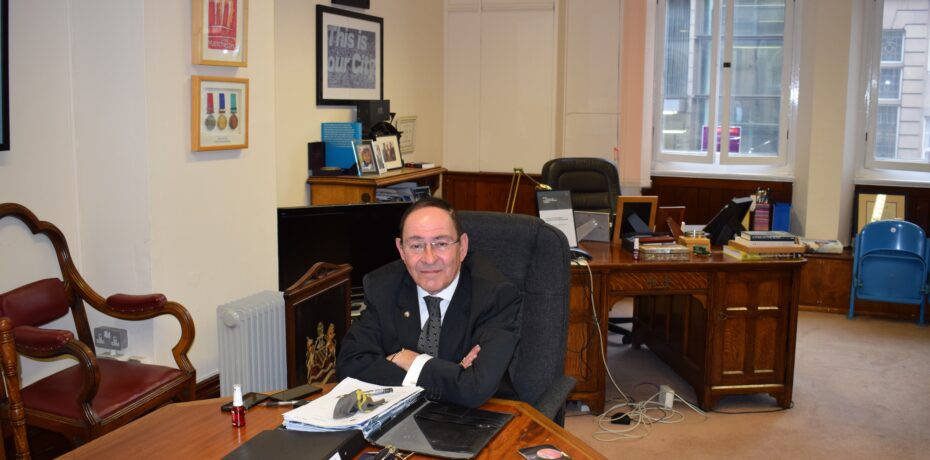
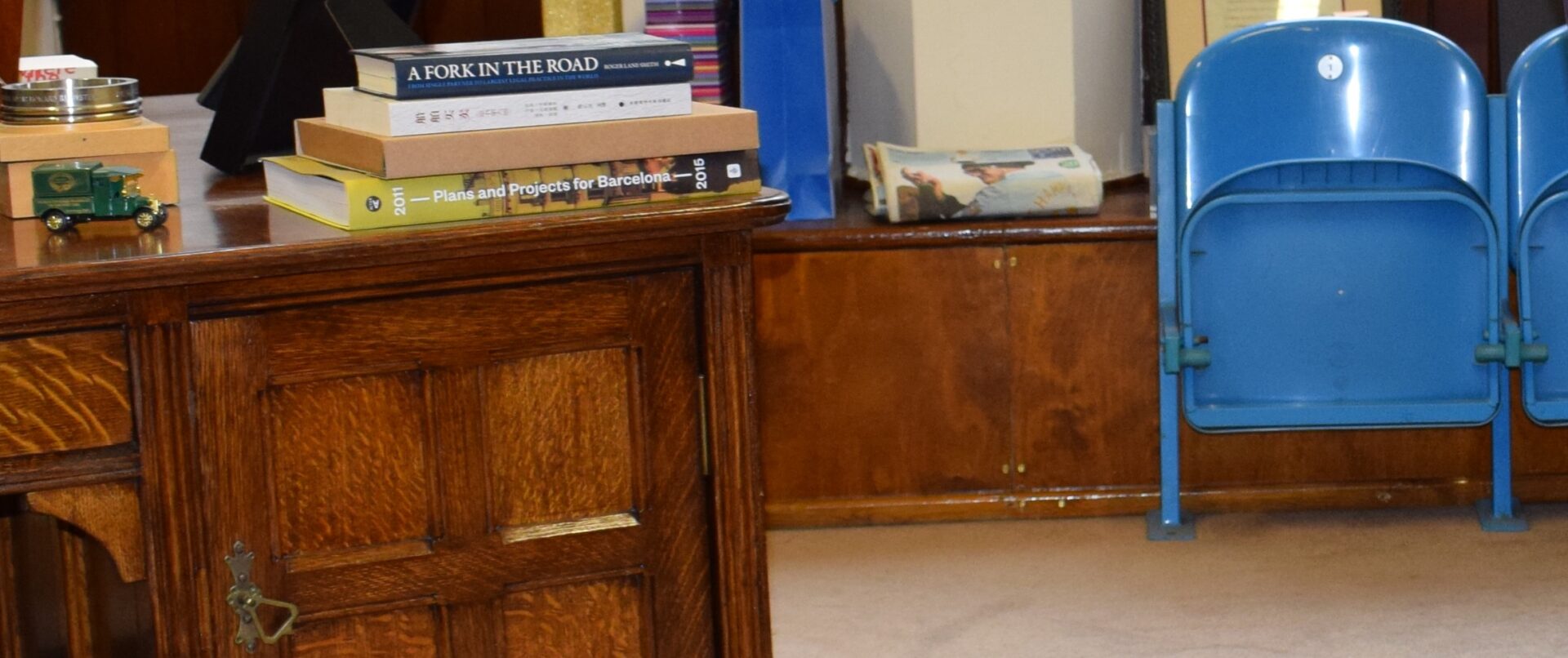
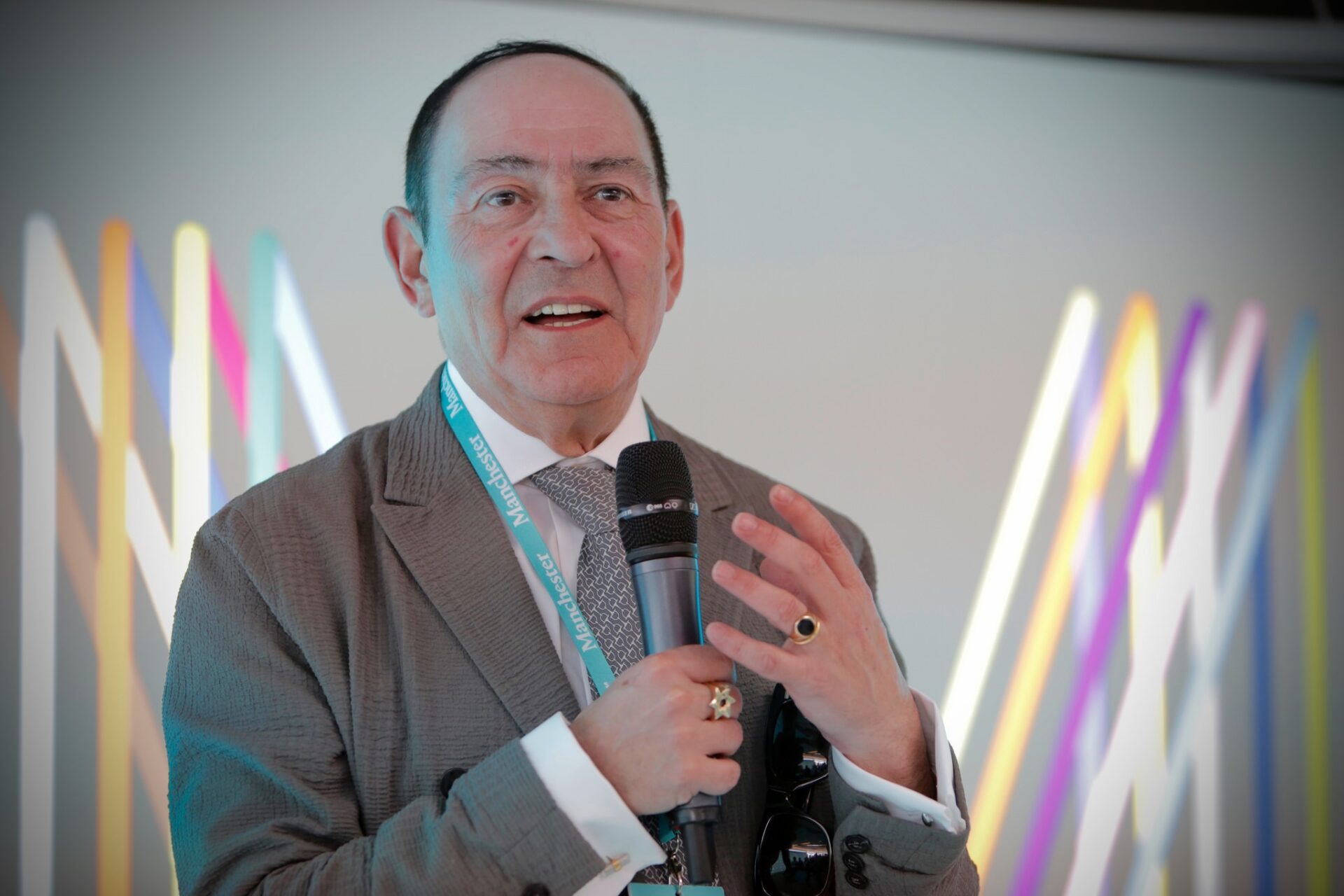
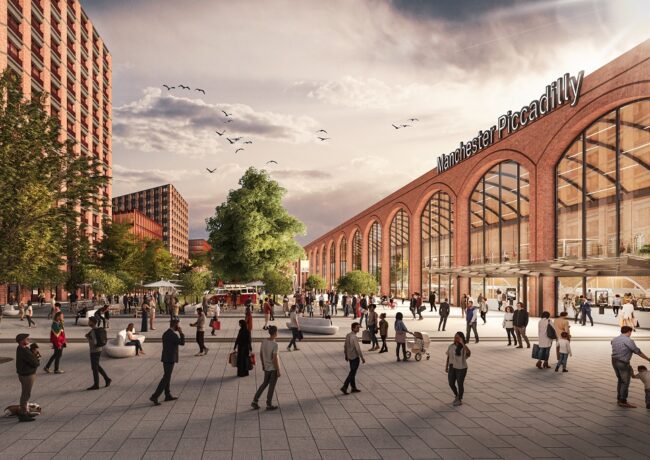
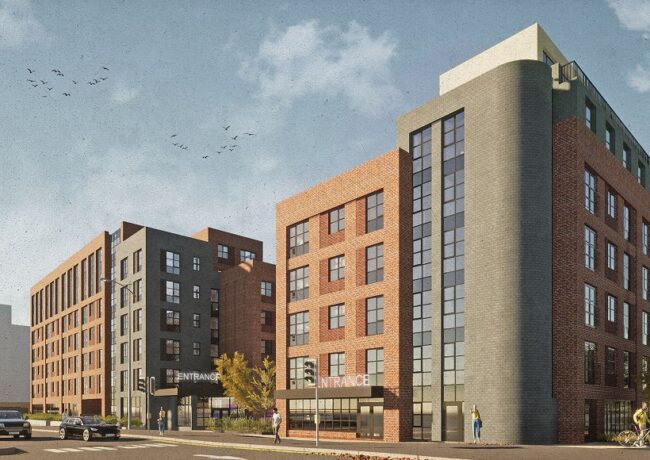
Interesting but confirms what most people suspect was the case. He loves and excels in closing deals and operating with influential businessmen and government officials.
But he clearly viewed planning not as a balance of social, economic and environmental interests but as an impediment to drawing in private investment and a barrier that must be circumvented. Some of the biggest property developments as well as the more hum drum ones throughout the city have this philosophy stamped all over them.
This philosophy has consequences. Unfortunately too many people who have the choice seem to have little desire to stay here long term which is due in no small part to the oppressive nature of the environment in places, a lack of diversity in services and amenities (public and private) and the consequent lack of oppprtunity to forge meaningful connections with other people. Not everything can be boiled down to “an investment proposition”, there is a bigger picture here.
Manchester is a truly great city with a globally significant history. But it is competing against places at home and abroad with better climate or with different development paths which allowed their cities to be laid out in more civilised lines.
Bernstein has done a top drawer job in helping to turn around perceptions of a city mired in the post industrial doldrums. We now need an approach that puts the needs of citizens front and centre in the development stakes.
We also need to exploit to the maximum that which makes us distinctive, our scientific, commercial, and industrial heritage rather than obliterate it to create a clear development plot.
We need to understand what people value rather than what impatient development finance values and work from there.
Bernstein undoubtedly achieved so much for Manchester as evidenced by all the cranes on the horizon. As the city fills out those remaining blighted empty plots within the inner ring road, the time seems right to hand over to someone else and forge a slightly different approach for the next phase of the city’s development, building on what he achieved.
By Anon